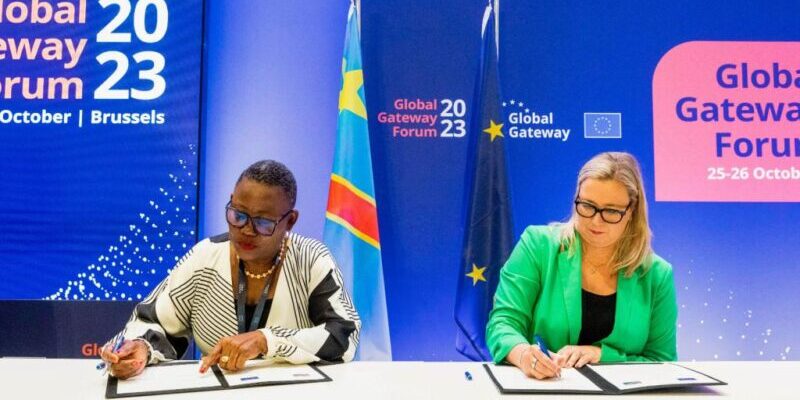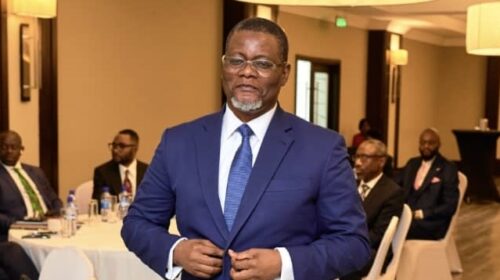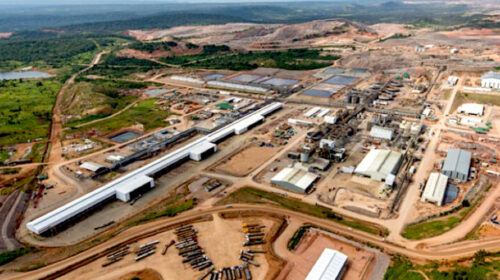EU Signs Crucial Partnerships with DRC and Zambia for Sustainable Raw Materials Value Chains
At the recent “Global Gateway” forum in Brussels, Jutta Urpilainen, the European Union’s Commissioner for international partnerships, signed significant memoranda of understanding with key African counterparts.
On October 26, 2023, she joined hands with the Democratic Republic of Congo’s Minister of Transport, Marc Ekila Likombo, for a partnership on critical and strategic raw materials value chains.
Furthermore, a strategic partnership on sustainable raw materials value chains was established with Zambia’s Minister of Finance, Situmbeko Musokotwane.
This momentous event follows the G20 Summit in New Delhi, India, in September 2023, where the EU, the United States of America, the Democratic Republic of Congo, the Republic of Zambia, the Republic of Angola, the African Development Bank, and the Africa Finance Corporation made a commitment to support the development of the “Lobito corridor.”

This transport corridor is set to connect southern DRC and northwestern Zambia to regional and global trade markets through the port of Lobito, Angola.
Ursula von der Leyen, President of the European Commission, stated, “The Global Gateway strategy provides the framework for ambitious and strategic partnerships driving structural transformation.
The new partnerships with the DRC and Zambia will support the development of sustainable and resilient value chains for critical raw materials, while creating quality local jobs. The Lobito Transport Corridor will also be a game changer in boosting regional and global trade.”
The Global Gateway strategy will play a central role in supporting actions under the partnership with the DRC on critical and strategic raw materials value chains and the sustainable raw materials partnership with Zambia.
The two MoUs signed today establish close cooperation in five areas: the integration of sustainable value chains for raw materials; mobilization of funds for infrastructure development; cooperation to achieve sustainable and responsible production; cooperation in research and innovation; and capacity building to enforce relevant rules.
Once the memorandums of understanding are signed, roadmaps detailing concrete joint actions to be implemented by 2030 will be developed.
The memorandum of understanding signed today describes the collaboration between the various partners involved and defines the roles and objectives with a view to the development of the Lobito corridor.
The partnership leverages financial resources and technical know-how to accelerate the development of the Lobito Corridor, including investments in digital access and agricultural value chains that will strengthen regional competitiveness.
Cooperation will focus on three areas: investments in transport infrastructure; measures to facilitate trade, economic development, and transit; and support to related sectors to foster inclusive and sustainable economic growth and capital investment in the three African countries over the longer term.
Once fully operational, the corridor will enhance export opportunities for Zambia, Angola, and the DRC, boost the movement of goods, and promote the mobility of citizens.
These partnerships signed will provide benefits to all parties, ensuring that the resources of the DRC and Zambia are used to support sustainable, equitable, inclusive, and peaceful socio-economic development.
This collaboration also aids the EU in implementing its ambitious green pact by giving the means to those involved in the ecological and digital transitions in the two regions.
A sustainable supply of raw materials, especially critical ones, is an essential prerequisite for achieving green and clean energy goals.
89 total views , 2 views today





